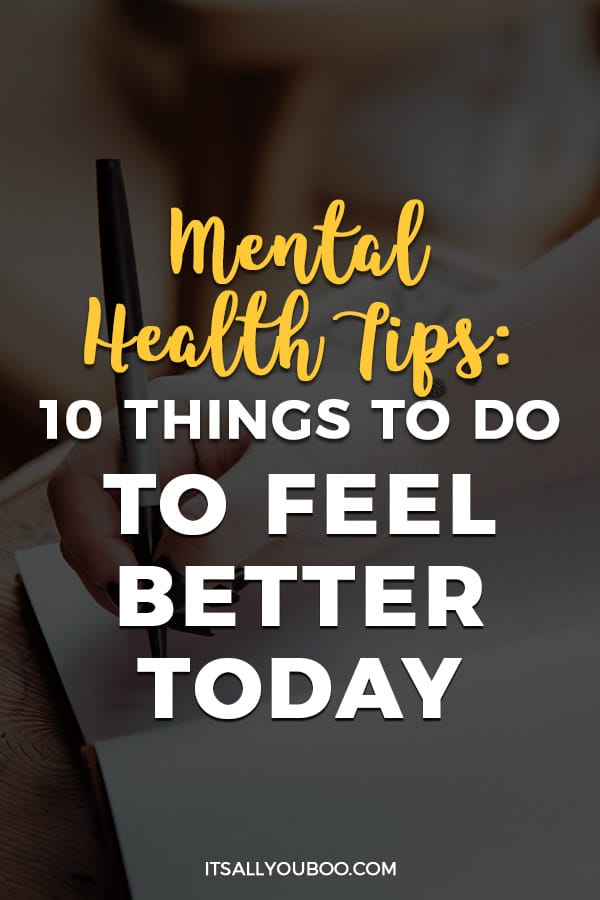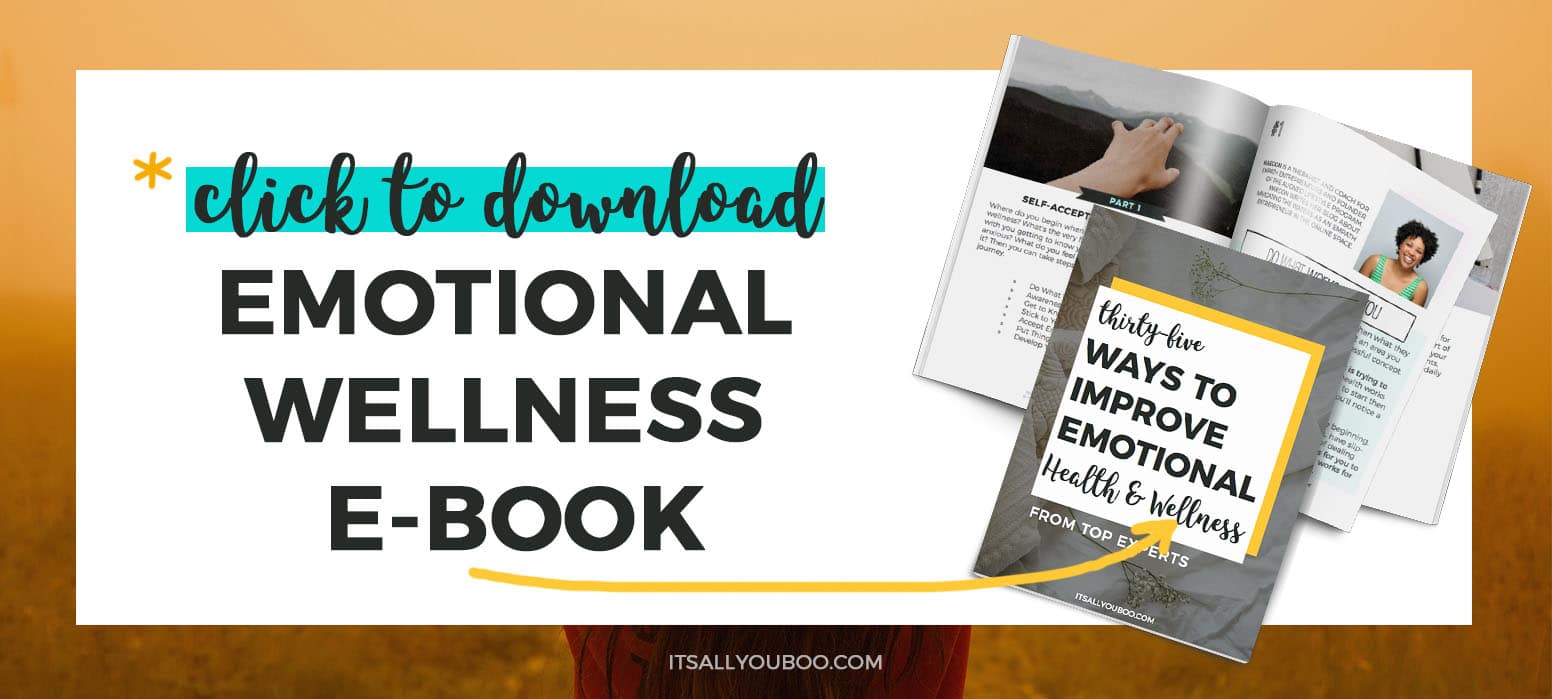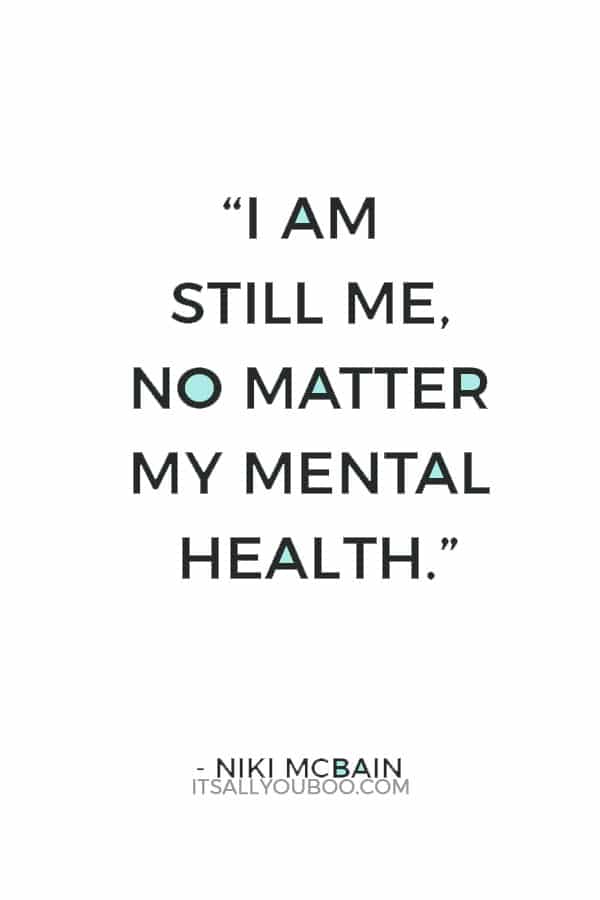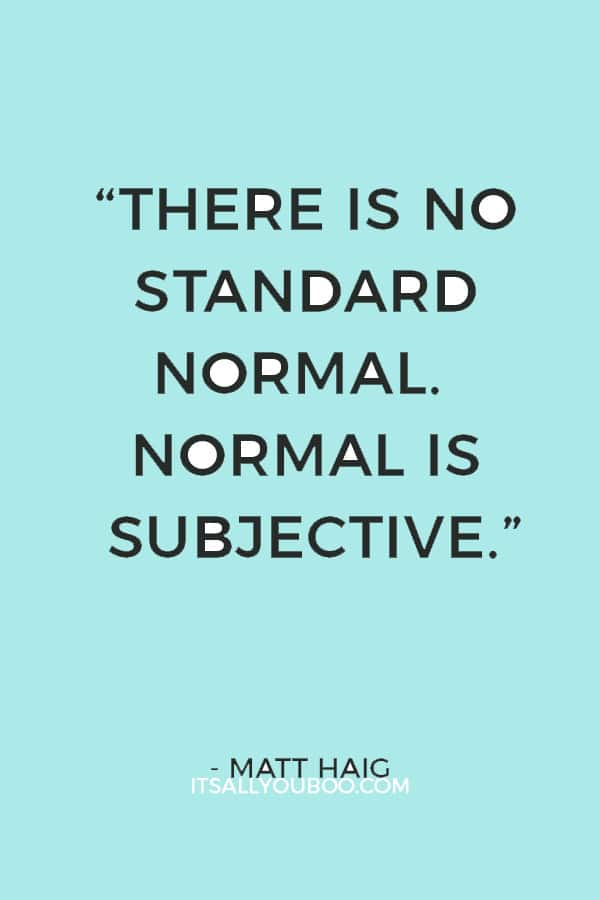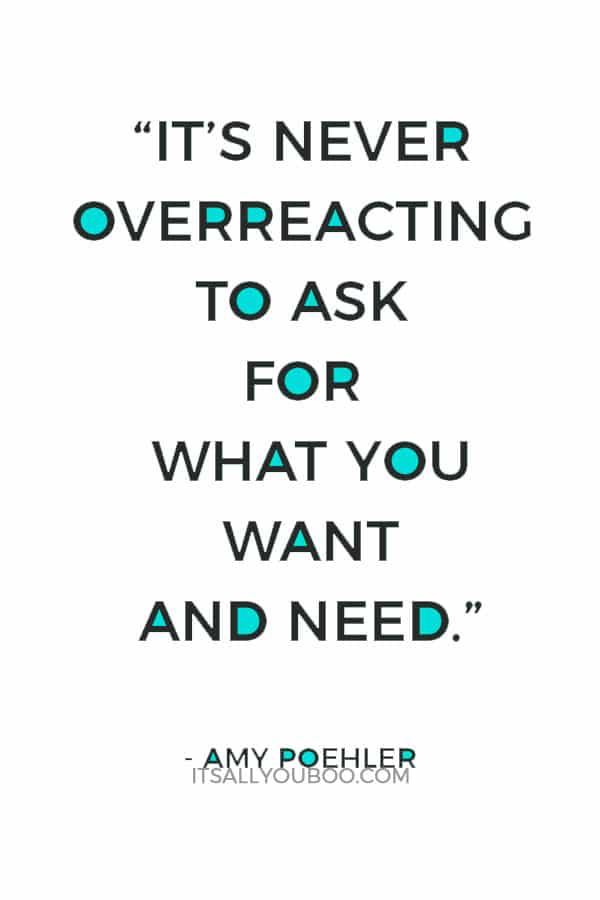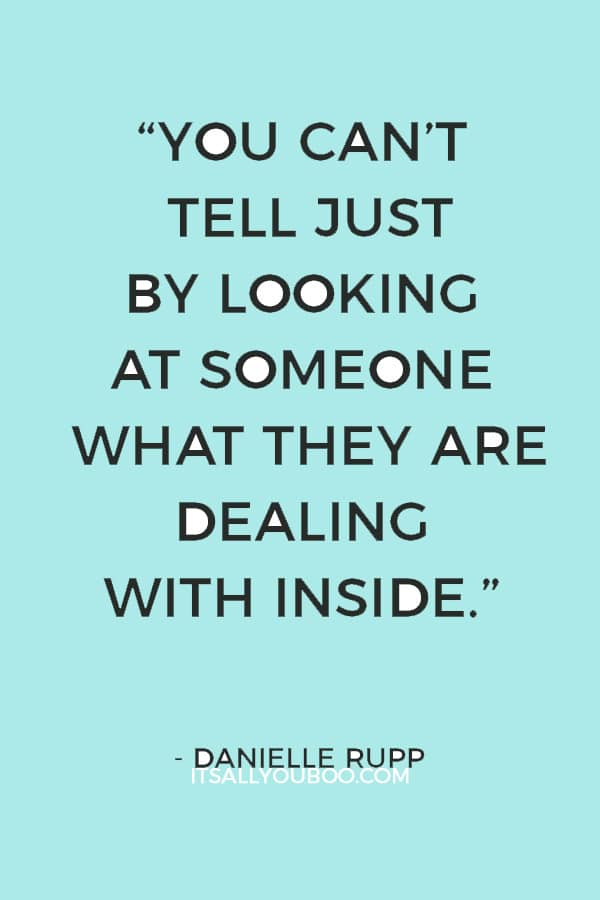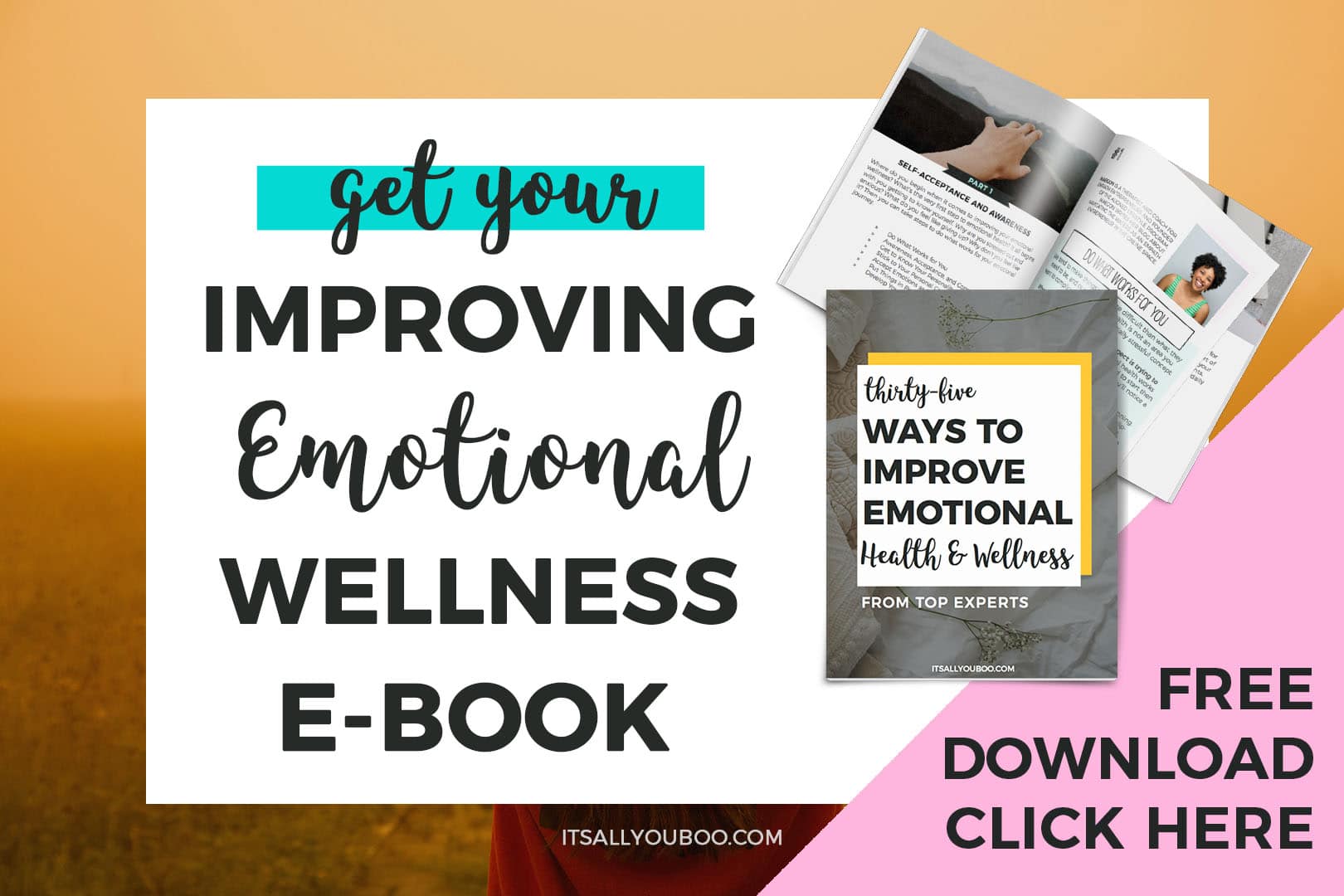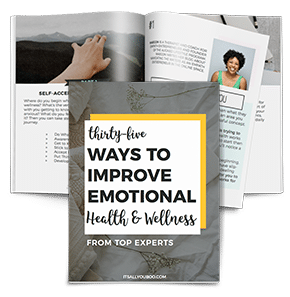How do I promote good mental health, every single day?
Want to focus on your mental health? Click here for 10 things to do to feel better today that improve your mental health by @HowtoSocialWork #Anxiety #Stress #MentalHealthYou hear catchphrases like “good mental health” and “mental health awareness,” but what does that mean to you?
Mental health tips aren’t just a campaign or for other people, they are beneficial to all of us. No matter how happy and balanced we are, we can always improve our mental health.
I know this from experience that focusing on my mental health daily has improved my quality of life. This is true for both in and outside of the workplace.
Table of Contents:
Disclaimer: If you struggle with your mental health, please seek support from a qualified mental health professional.
Why Do You Need Mental Health Tips?
Sitting in that conference room, I could feel my body temperature rise. My anxiety was culminating as I sat right next to our department’s director. He’s looking right at me speaking, but I can’t understand a word he’s saying. Whatever he’s saying, it’s not English.
My body is trembling. I stare blankly at him. There is no hiding in this chair. I need to say something. My voice mutters “uh huh”.
I hope that he’s not asking me a question. If I can get through this meeting without being noticed, it will be a victory. What am I saying? Without being noticed? How am I not noticed?
Looking down, I can see my notes are completely illegible. My hand shakes holding the pen. Can this meeting be over yet? There is no way no one has not noticed me.
THIS POST MAY CONTAIN AFFILIATE LINKS.
IF YOU MAKE A PURCHASE FROM THESE LINKS, I MAY EARN A SMALL COMMISSION.
CLICK HERE FOR MY FULL DISCLAIMER STATEMENT.
How Mental Health Tips Can Help You
Improving your quality of life is not a simple venture to undertake. Our lives are complicated by relationships, work, and circumstances often out of our control.
These stressors can be central in destabilizing our lives. Something that is a stressor to you may not be a stressor to me. We all have our own resilience and sensitivities.
These factors strongly impact our quality of life. If you don’t have the resilience to overcome a lost relationship or other life change, you are very likely to have an ongoing dissatisfaction with life beyond this short-term problem.
You don’t need to have a nervous breakdown like me to find usefulness in improving your quality of life with mental health tips.
What is the Importance of Mental Health Anyway?
It’s unlikely that everyone reading this has had an experience where your mental health is literally crumbling away in front of a meeting of people.
Here’s the truth. The state of your mental health is what creates the lens in which you view the world.
Read that again and think back to those complications in your life.
You can be depressed and will never beat depression without changing your lens. Therefore, your quality of life will never improve without changing your perspective of the world.
This is a foundational theory in existential psychology.
Mental health is more than just your emotional reaction to bad circumstances. It is a result of biological predisposition and environmental influences. Even with medication, your lens will not change. There is no happy pill.
👉🏽 RELATED POST: How to Spend a Mental Health Day
There are systematic exercises you can do to change that lens of which you’re viewing the world.
But it will take hard work.
The appeal of medication is that it’s quick acting and will make you all better. This is an unfortunate false-belief that leads many astray from treatment.
Medication Does Not Circumvent Mental Health Tips
Medication is useful to help increase your ability to go to work, school, and tolerate stress. However, it will never make you happy.
You can expect, at best, medication to improve your functioning between 30-60%- presuming it’s the right medication. And for the majority of medications, it will take weeks to get a noticeable benefit.
However, as I write this, the FDA has just released a new medication for treatment-resistant depression. It will be interesting to see how this impacts the brain and recovery.
Many “quick acting” (e.g. benzodiazepines, amphetamines) medications are not great for long-term use. Your body builds a tolerance, which means you need more to feel the same effect.
To a degree, this is why self-medicating occurs through alcohol and drugs. It’s not a character flaw to seek out anything that makes us feel good quickly. If you’re curious why ask BF Skinner.
As a clinician, these false-beliefs about medication and mental health are hurtful and often perpetuated by the media.
👉🏽 RELATED POST: How to Deal with Stress and Anxiety
The news, movies, and various screens shoved in our faces make us believe psychiatric medications are like taking ibuprofen for a headache; you simply take it when symptoms arise and go on living your happy life.
It is an uphill battle to educate and reel inappropriate expectations in the face of this stigma. Benefit from medication comes from taking it exactly as prescribed on a sustained and consistent basis.
So, how do we capture that other half of the equation? We need to build resilience and coping skills to improve our overall functioning and quality of life.
Let’s then break down how to be mentally healthy and happy.
10 Mental Health Tips that Promote Good Mental Health
Look beyond what these tips may appear at surface level. Each can be very compelling in their own right.
#1. Love those Nearest to You
That goes without saying, right? It is critically important for your well being to invest yourself emotionally into another person.
When we live with our guard up, we have a tendency to push others away. Embrace those nearest to you allowing them to support you.
There is in fact research that shows depression can be alleviated through investing yourself in others. So embrace their support; it’s a win-win.
👉🏽 RELATED POST: 8 Reasons Why an Entourage Can Help You
#2. Laugh with Others
The idea behind this mental health tip is similar to loving those nearest to you. Seek out friends who will help you focus less on yourself and abolish your guardedness.
Laughter is the best medicine; not only does it help lower your guard and take the focus off yourself, but it also promotes feel-good neurochemicals called endorphins and also reduces our stress hormones.
The cherry on top is there are no side effects to worry about!
#3. Exercise Daily
Depression and anxiety can be tough to beat because of how they make us feel. We keep to ourselves, fight others away with a chip on our shoulder, and sulk inward.
To kick these symptoms, one of the best activities to improve your mental health is exercise! Get out of the house, go for a walk, run, cycle, anything! This does two things. First, just like laughter, exercise will release endorphins.
👉🏽 RELATED POST: How to Reach Your Health and Fitness Goals
These neurochemicals are your body’s heroin- seriously. Endorphins give you an amazing feeling of well being, which can become a healthy addiction.
Secondly, getting out for exercise opens you up to catch some sun. Through the sun’s rays, you will receive natural vitamin D, which is essentially a homeopathic antidepressant.
Boom.
#4. Practice Mindfulness
If you constantly find yourself depressed or anxious, mindfulness may be just what you need. There are literally dozens of mindfulness exercises, which require no special training to do.
Mindfulness will help you stay in the moment. Often with depression and anxiety, our thoughts are elsewhere.
Mindfulness will also help you view life circumstances objectively; you will no longer use good or bad as labels. Using this objective mindset, you will be able to change your reactions.
An entire article would need to be devoted to properly explain what mindfulness is. But I encourage you to give it a shot!
#5. Get a Good Nights Sleep
Catching up on sleep can do wonders for your mental health. There are some studies that suggest that an underutilized treatment for depression is simply shifting one’s sleep schedule.
Create a bedtime routine by forcing yourself to lay down at the same time every day. An hour before your bedtime, turn off all electronics as the light entering your eyes can be as stimulating as daylight.
Even if you don’t fall asleep, you must remain in bed and get up at the same time each day. Whether you got a full 8 hours or a broken 2, get up!
👉🏽 Get Yours Free: The Ultimate Bedtime Checklist
Another trick to reset your sleep schedule is to stay up all night and the next day. Depending on the time you need to wake up, you will go to sleep about 8 hours beforehand.
There are even some over the counter supplements you can use to aid your sleep; melatonin is a popular one.
#6. Journal Your Thoughts
Journaling is one of the most underrated activities to improve your mental health. When I see someone for individual therapy, you can bet that journaling will be part of their homework.
Now, journaling does not have to be simply writing about your day and what has pissed you off. It’s way more than that.
Journaling is about writing with intent. We often feel anxiety because of an unfulfilled expectation. These expectations are sometimes outside of our conscious awareness. To uncover these thoughts, we must process through those top layers of consciousness. Consider even starting a bullet journal.
One of the best exercises you can do to beat anxiety and depression, however, is to journal a couple of simple expectations for your day in the morning. At night, you journal about a couple of your appreciations.
These journals don’t have to be super in-depth, but what they do is help you shift your thinking into the positive. With serious devotion, you can make journaling a cornerstone habit to improve your mental health.
#7. Practice Meditation
Meditation is not just for drum circles and communes anymore. In grad school, I had to run a group on the benefits of meditation. Prior to the class, I wasn’t sold on the idea either.
But, after both teaching and practicing meditation for the class, I learned some of its immediate benefits- calm, soothing, clear thinking, and improved energy.
If you struggle with your mental health, meditation is an awesome mental health tip.
When I saw the benefits from class, I began to use the app Aura at work. The most anxious part of my day is in the morning. Aura gives you 5 minute guided meditations that are catered to how you feel.
After using Aura, my mornings have become anxiety free. I also started to use this app in the afternoons if I feel myself crashing after lunch.
#8. Reduce Your Screen Time
How much screen time do you get per week? If you are putting in too many hours in front of social media, Candy Crush, and other mind-numbing apps, you may be in store for a digital hiatus.
There is a lot of research that shows social media can really put you in a negative place. Unless you spend your screen time looking at pictures of kittens, your newsfeed likely will have fiery political statements, friends in seemingly better circumstances, and derogatory memes.
Having hours of negativity and conflict front and center screen is not the only thing you have to worry about. This time on screen does not just steal your positive attitude, it also steals you from your loved ones.
It is your loved ones who are going to be supporting your emotional health- not those kitten videos. Though, some videos may be a close competitor.
So think twice about which is going to provide you better help in a tough time.
#9. Book a Therapy Session
Therapy may seem like the most obvious of these mental health tips. You have anxiety or depression and you see a counselor, right?
Well, you can. But there are so many things that affect your mental health. It’s not enough to just say that you will see a therapist for anxiety or depression.
The truth is, there are many seemingly unrelated causes to these issues. You may be feeling them, but the cause may be trauma, chronic pain, substance use, strained relationships, and more.
We have personal blinds spots that can present these problems when, in reality, it’s something very different.
To discover these underlying causes, seek out a therapist or a counselor to work through them with you.
#10. Use a Grounding Exercise
Grounding has many similarities to mindfulness. Interestingly enough, in my research for this article, there are nearly no consistent definitions of grounding. So I’m going to tell you my opinion of grounding.
Much like mindfulness, grounding will help you stay in the moment and combat overwhelming feelings; they both also have dozens of exercises you can find online.
However, when I explain grounding to a client, I emphasize that it’s a shock to your senses. This may include taking a cold shower, holding an ice cube in your hand, rolling a pebble between your fingers, tasting something sour, or any other way to overwhelm your senses.
👉🏽 RELATED POST: Ways to Deal with Panic Attacks and Anxiety
When you do a grounding exercise, you are forcing your brain to shift its focus from the frontal lobe to the hindbrain. This allows those distressing thoughts and overwhelming feelings to flee your brain while focusing on these shocks to your system.
After a few minutes, those overwhelming and uncomfortable feelings cannot be maintained. Grounding may be best used when prevention skills are not working.
Are these all the Mental Health Tips You’ll Ever Need?
Absolutely not. These mental health tips are just scratching the surface of building resilience. The secret to improving your quality of life, and living a happy and healthy life is to focus on your mental health.
It is your temperament and outlook that permeates each area of your life.
Looking back on the serious hard times I had, it’s quite amazing that I made it through. The reality of my experience is that there was no singular mental health tip that saved me.
What did save me was embracing a commitment to creating habits to improve mental health in every aspect of my life.
FREE Improving Emotional Wellness eBook
Need to focus on your emotional wellbeing and mental health? Get your FREE 40-Page eBook with emotional health advice from top experts.
Please be sure to seek professional help if you need it.
So use these 10 mental health tips as a jump off point to begin your journey through recovery. No one person’s difficulties are the same, but regardless, the same tenants hold true.
Your quality of life is contingent upon adopting these and more mental health tips.
Living a happy and healthy life starts with embracing your mental health.
What’s your go-to mental health tip?

More About Guest Contributor
Ben is a clinical social worker who has overcome significant mental health problems himself. He now uses these personal and professional experiences to help others improve mental health coping skills and related professional development.
Last Updated on July 23, 2024
